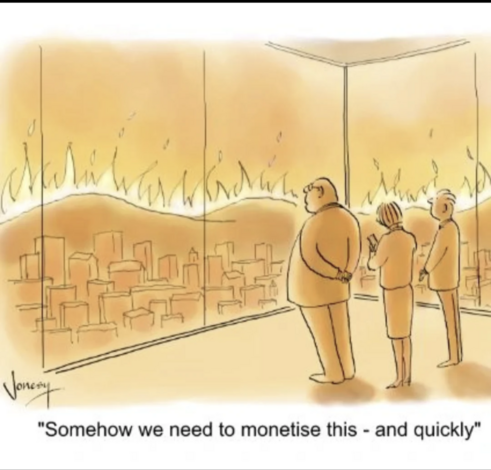Many appreciated my op-ed yesterday, as the important points & concrete examples resonated with them or rethink the #climatecrisis.
But a couple of folks have expressed the TINA (there is no alternative) attitude. In other words, 'my prosperity may destroy the biosphere but so what'. 👀
Hmm, I wonder where will they enjoy this prosperity when they can’t breathe the air, drink the water, food systems have collapsed, oceans acidified, stronger frequent storms & floods hit? 🤔
#climatechange


